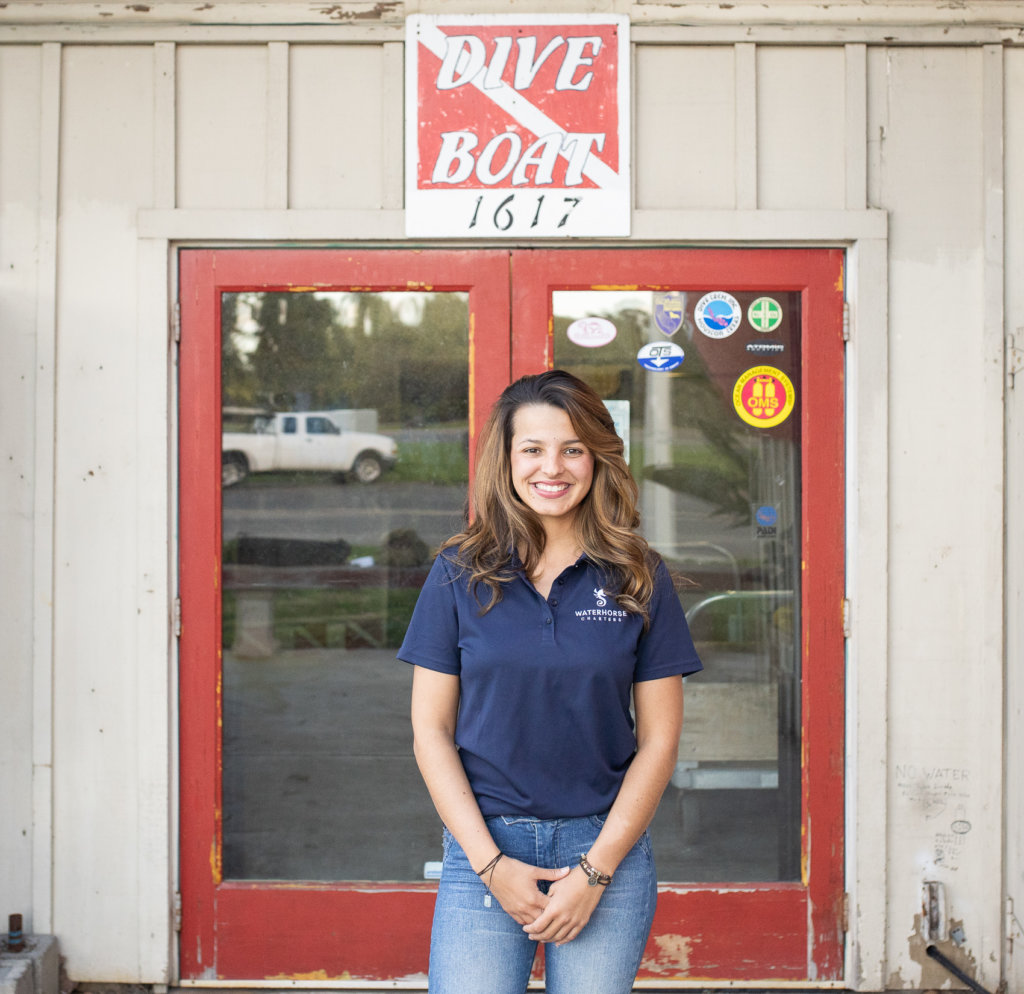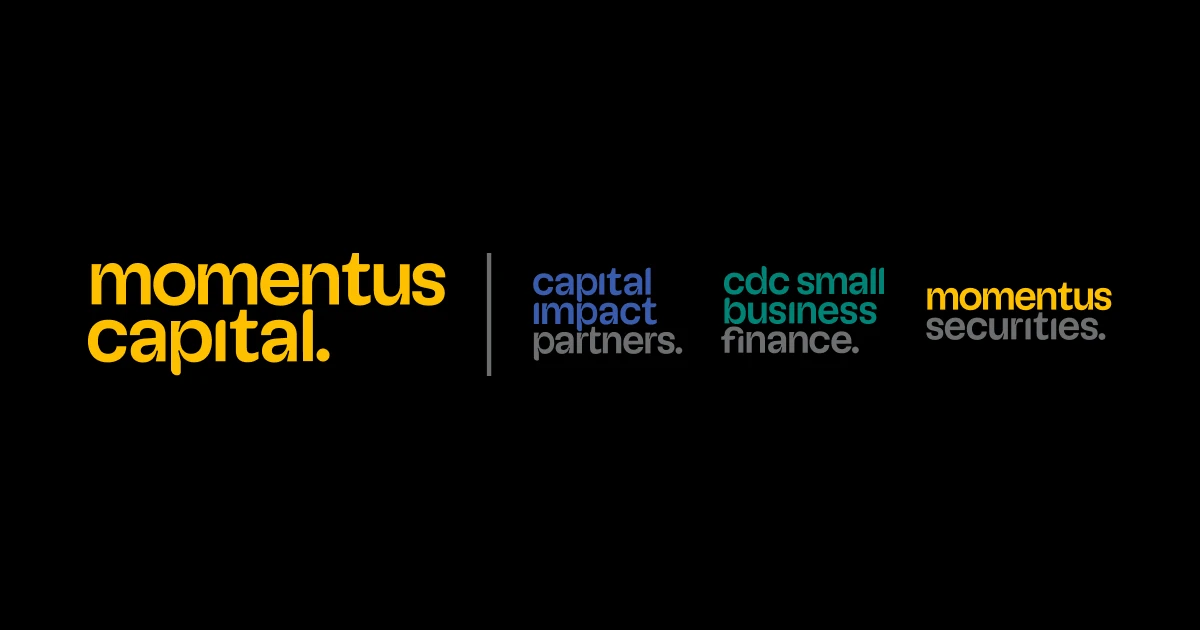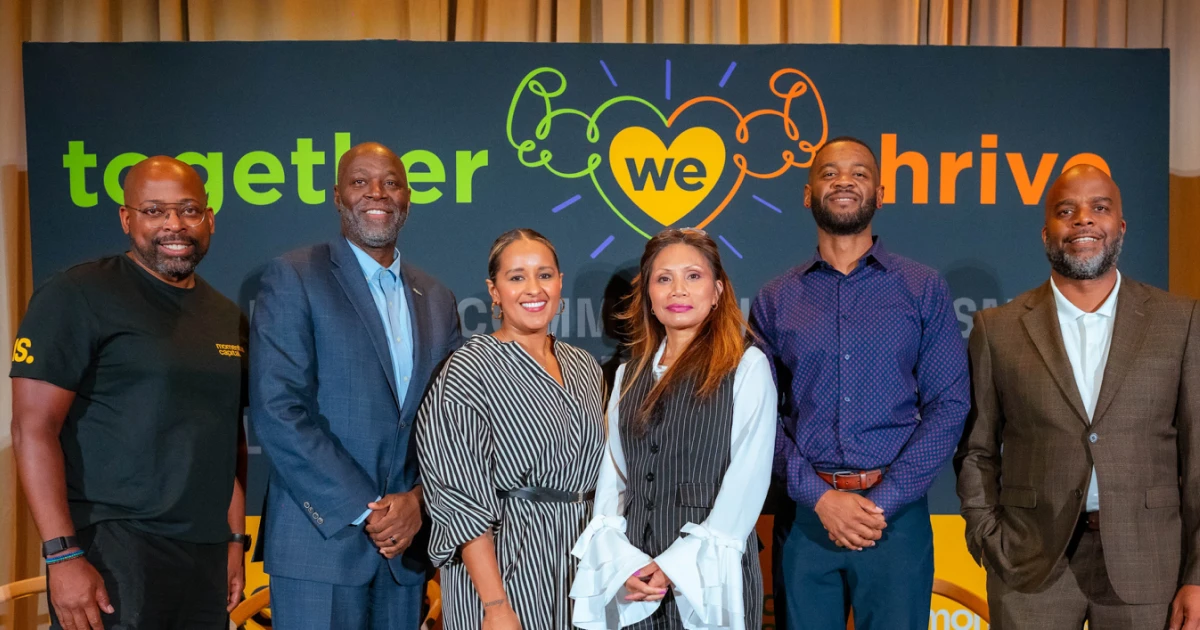When married entrepreneurs Karina Sanchez and Zachary Weisman received a loan to take over Waterhorse Charters, it pleased them to see they would gain access to business and financial coaching.
Little did they know, Chuck Sinks of CDC Small Business Finance would become an ardent supporter of their diving company. Not only did he attend Waterhorse’s grand opening, he happily sports the business’ promotional shirt and cap.
“Chuck has been a cheerleader (for) our business,” Karina said.
The couple shares a passion for going out on the water with a boatful of eager scuba divers. They soon realized though, that they must be able to balance the books and track assets, revenues and expenses too. Learning this best practice will allow them to keep their dream afloat for the long term.
That’s where Chuck and his Business Advising Services team come in, so they can guide CDC Small Business Finance’s clients.
Many of those clients have a strong background in their chosen field, but find themselves less schooled in the finer points of running a business. Chuck has seen the power that acquiring financial skills offers entrepreneurs and how that knowledge transforms the chances of turning a business into a success.
Doing Financial Projections?
Yet the first steps aren’t easy. It may take time to build financial muscles – and use them to understand what the numbers are telling you.
For instance, Chuck recommends that prospective business owners commit to producing a “24-month forward-looking cash flow projection.”
Whatever your dream, you probably haven’t expressed it in quite those terms.
That knowledge is a must, however, if as a business owner you are to have an accurate picture of your finances. The picture informs every decision, from purchasing additional inventory and hiring employees to expanding services and purchasing property rather than leasing it.

Yet many owners start their businesses lacking that critical knowledge. Intuit surveyed small business owners about their financial literacy and discovered that a large slice – 40% – describe themselves as financially illiterate. Despite that, more than 80% of those surveyed handle their books themselves.
Chuck says the number of small business owners he sees who don’t have a grasp on the basic metrics to gauge their success is “frightening to me.”
Did you start your business without a foundation of financial knowledge? You are not alone. Fortunately, though, there are many paths to take to get help, learn the basics and be a stronger entrepreneur.
Want to get started? There are a number of local centers and online sources that explain financial terms, from a handful to dozens of them. Whatever you’re up for – whether it’s learning just a few new words, or a deluge – these sources can help owners better understand their small business.
Intuit, for instance, suggests that business owners be familiar with: assets, liabilities, expenses, accounts receivable, cash flow, profit, loss, net profit and income statements.
Filling the Financial Gap
But for anyone who is overwhelmed, whether they’re thinking of opening a business or already have one, Chuck suggests starting by boiling it all down to gross margins, cash flow and profit and loss.
- Gross margins: “If you can make or buy whatever your widget or service is for $1 and you can sell it for $2, your gross profit margin is 50%,” Chuck said. “Out of that dollar of profit though, you have to pay for all of your operating expenses.” Which leads us to …
- Cash flow: The money generated by your total sales minus expenses. That includes anything from the cost of tools and raw materials to rent and wages.
- Profit and loss: These statements track trends in your income and expenses over a specific period, usually quarterly or annually.
When Chuck counsels clients who initially find themselves stumped, he suggests a temporary way to simplify things even more. “Just watch the cash,” he said.
For her part, Karina laughs at how Chuck’s advice made her head spin at first. Soon, though, he became a trusted resource based on his previous experience as a business owner.

“It’s almost like having a dad on your side, telling you what to do when you’re getting freaked out about something or you just don’t know what to do,” Karina said.
Chuck liked her willingness to learn – it’s something he likes to see in all his clients. He credits Karina with taking the time to study accounting to bolster her understanding even more.
Additional Resources
Coaching isn’t the only option. There are many opportunities for small business owners like Karina and Zach who need support to learn the financial ropes:
- Small Business Development Centers: There are more than 1,000 of these centers throughout the country. They offer workshops and classes to support small business owners at every phase of the process. In addition, some centers specialize in the needs of women and veterans. Here are examples of workshops in financial basics – “Understanding Your Financial Statements” and “Financial Literacy 101.” Use the link to search for a nearby center.
- Online resources: Various sites offer answers to basic questions about running a small business. Among them are the Small Business Administration and SCORE, which features live webinars and an impressive archive of past events.
- Business plans: Creating a business plan should focus you on your venture’s viability. It will give you an idea of weak spots in the numbers or your understanding of them. There are templates offered online, by CDC Small Business Finance, the SBA, SCORE and others. In addition, LivePlan, a subscription service, offers step-by-step guidance.
Chuck likes to cite two “four-letter words” – work and risk. And putting in the work to understand financial terms will ease the risk for small business owners.


